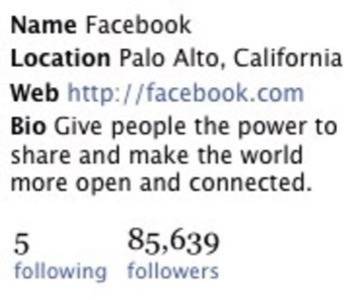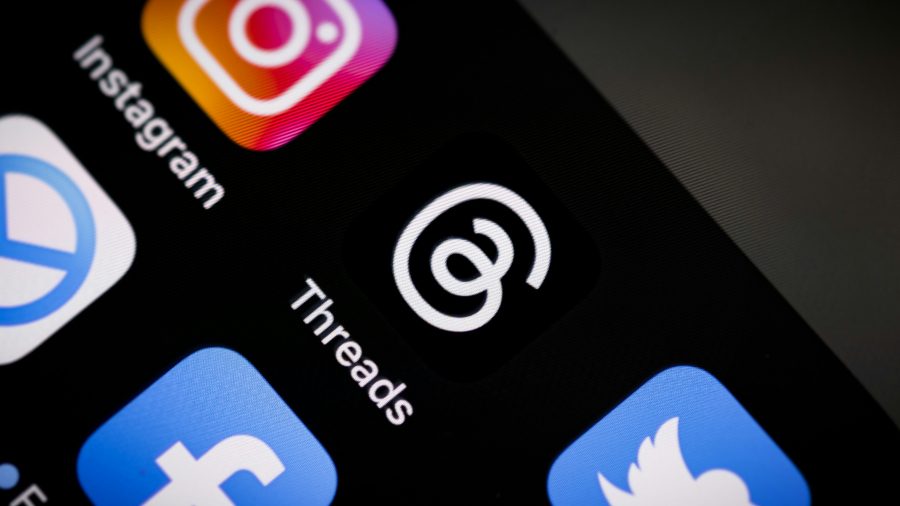Facebook held a conference call today about changes being made to the website’s privacy features but we were left feeling a little confused. A long list of settings are being collapsed into a much more manageable privacy interface and users who want to keep sharing messages only with friends and family they have approved will be able to continue doing so. But it is pretty clear that Facebook would like you to share a lot more information publicly than you are right now, with the whole wide open internet.

Why? I asked the company if they really were trying to nudge users into being more public on Facebook and if outside developers would then get access to more user data. Two out of three of the Facebook staff members on the call have now confirmed that yes, they are aiming for users to be more public. Leah Pearlman is a Facebook Product Manager and author of the forthcoming book Facebook for Dummies but her explanation for why the company wants more public sharing to happen was pretty hard to believe.
We pointed out that the new Facebook publishing interface has “everyone” as the privacy setting at the top of the list and the most realistic option, sharing specific things with specific people in appropriate context, is at the very bottom under “custom.” (Most users of any system stay away from custom settings.)
Pearlman said that yes, Facebook does want people to share more information publicly than they are today. Her explanation? She said that it’s hard for people to tell the difference between users with similar names when looking for their friends. More publicly shared information would make your friends with common names easier to identify.
That’s not a credible reason to change the fundamentally private nature of Facebook that millions of people have long considered the best reason to use the site.
So why does Facebook want you to share more information publicly? Here are some other explanations we’ve heard so far.
Greater Control
Other Facebook execs say these new privacy changes are all about increasing a user’s control over their privacy – letting them be “as public or as private as they want to be.” Why then is the least controlled privacy setting at the top of the list and the most controlled version buried?

Furthermore, in our testing so far – the new privacy controls are actually quite a challenge to control. Changed defaults don’t stick and we shared several messages further than we intended to.
We do believe the arguement that more control over privacy will help people feel comfortable sharing more information on the site, but we’re not sure this really is more control. If Facebook really wanted to give users more control over their privacy when posting messages, it would prompt you each time you share something like this:
Who is this message for? 1. One or more of your lists [select], 2. all your friends, 3. your friends and their friends or 4. everyone.
That list of options goes from most controlled to least controlled, from the most familiar option to the least familiar. That’s not what Facebook is doing, though. The company has an agenda to get people to share more publicly than we are today.
“More control” was Chief Privacy Officer Chris Kelly’s explanation, when Pearlman said what she did about duplicate names. So Perlman and Director of Communications Brandee Barker (see quote below) acknowledge that the company is trying to move users in a more open public direction, but the Chief Privacy Officer makes an obtuse arguement that it’s all about user control. That doesn’t inspire confidence in the company’s official privacy policies.
Traffic and Advertising
It’s possible that Facebook wants to increase publicly visible real estate (your conversations with friends) so that it can bring in search traffic and sell ads. The company said today though that even “everyone” public messages will not be indexed by Google yet. (“We’re talking about it,” they said, “but not at this time.”)
Facebook also said there would be no increase in the amount of information given to advertisers.
Facebook Director of Communications Brandee Barker told us this in response to our “why” question:
Sharing is at the core of our product. Finding people you know, learning about people you don’t know, searching for what people are saying about topics that interest you can generally only happen when people are open and choose to share. By recommending more open defaults, more people will be able to connect on the site. [emphasis added by us]
Is that really true? Facebook is about learning about people you don’t know and searching for what people are saying about topics that interest you? Far more often, we’ve heard the saying “Facebook is about people you know, Twitter is about people you want to know and MySpace is about people you used to know.” (Or that you don’t want to know! We don’t make ’em up folks, we just repeat the jokes.) The point is, turning Facebook into a place where people meet new people and learn new things about a topic actually represents a radical change in the Facebook user experience. Facebook has always been about connecting with the people you already know.
To Be a Twitter Killer
Finally we get to the explanation that I’ve been most hesitant to accept but is looking more credible all the time. Facebook may be nudging people towards more public sharing because it is afraid of Twitter stealing its crown.

Twitter is the apple of the media’s eye, it’s the Western connection to uprising in Iran and it’s more fun to talk about than Facebook. It’s more interesting for geeks because the data is open.
But Facebook is so much bigger than Twitter! One report, admittedly six months ago, estimated that at current growth rates it would take 36 years for Twitter to pass Facebook in number of users and said that right now Facebook grows a Twitter’s-worth of users every eight days!
More importantly, Facebook is not Twitter and Facebook’s users most likely don’t want it to be. Twitter is confusing, spam ridden and seems pointless to many, many people.
But if Facebook is to become more like Twitter, it’s going to need to adopt a radically different stance with regard to outside developers getting access to user data. That part of my question in today’s call didn’t get answered. It is a very exciting idea and if anyone could pull off both privacy and data availability, we’d have thought it could be Facebook. Time will tell.
Perhaps there’s some other explanation. Making Facebook like Twitter doesn’t sound like the best idea in the world, but it’s just about the only credible explanation we can think of for the increasingly clear push towards more public sharing on the site. Privacy settings have been confusing and today’s move to simplify them is great. But Facebook is a small-group method of communication for the vast majority of its users and emphasizing list-specific messaging instead of “everyone” would be a more honest way to give users more control over their privacy.





















